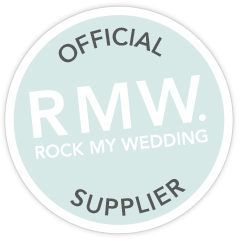Dietary requirements and food allergies… we’ve got this *breathe a sigh of relief*.
When selecting dishes from our menu, the first rule is to pick what you LOVE.
Don’t get side tracked by what your guests do and don’t like or will and won’t eat. They’re coming to your wedding to celebrate you, not cousin Sarah’s obsession with beige food.
How do we approach providing alternatives for your guests with dietary requirements?
Step one, confirm your menu choices! Step two, we then design separate dishes for any guests with relevant food allergies or dietary requirements. When doing so, we ensure that dishes are as in keeping with the confirmed menu as possible. This creates an inclusive atmosphere for everyone!
This avoids preparing an alternative that is vastly different to what most guests will be eating. Instead, the alternative dishes served will be as close to the menu that you have chosen as possible.
Sometimes this is as simple as replacing or removing a small element of the dish. This is great because the alternative will look exactly like the regular menu dish.
More complicated dietary requirements might mean that the dietary alternative is completely different, but still features a few elements of the menu dishes. For example purees, chutneys, herb/flower garnishes, so that some similarities are carried over.
Side dishes served in bowls are a great way to create an inclusive atmosphere during the main course. We find that side dishes can often be enjoyed by all guests including those with dietary requirements except for a very small minority.
So, guests with dietary requirements will generally still get to dig in to bowls of sumptuous sides! If they do need a separate version, this will generally be served on their plate to avoid any cross contamination.
What do you need to do?
It’s important that you gather as much information from your guests regarding dietary requirements as possible. Add a section to to your RSVP’s for guests to note their food allergies or dietary requirements. It’s a good idea to follow up with any guests who make notes. This is to ensure that they have given you enough information.
For example, if someone has written the word ‘milk’ as an allergen, this could mean a few different things. It might mean that they opt for a completely dairy free diet. Or it might mean that they can consume ‘cooked’ milk and dairy products but avoid raw milk or raw milk products such as cheese. It might mean that they can’t eat cow’s milk but could eat milk and milk products from other animals.
So, it’s important to get more precise information so that we can serve them a safe dish.
Severe food allergies
Some severe food allergies prevent sufferers from being in the same immediate area as their allergen. Common examples of this can include nuts, seeds and shellfish. So, make sure guests who report food allergies are clear about the severity of their food allergy. If any guests have food allergies this severe, their allergen will need to be avoided on your entire menu.
Although we opened this blog telling you not base your bespoke menu design brief on guest needs, severe food allergies are the only exception to that rule. Therefore it’s great to have this information as early as possible.
Most couples begin making their menu choices way before they receive their RSVP’s. So severe food allergies might not be something that you are already aware of. However, if you do know upfront that someone has a severe food allergy please let us know. This is because our team will consider other events that they may be preparing at the same time as yours. They will take extra precautions to avoid cross contamination!
We take food allergies and dietary requirements super seriously inline with government standards. We can chat to any guests who might have specific questions if required.


